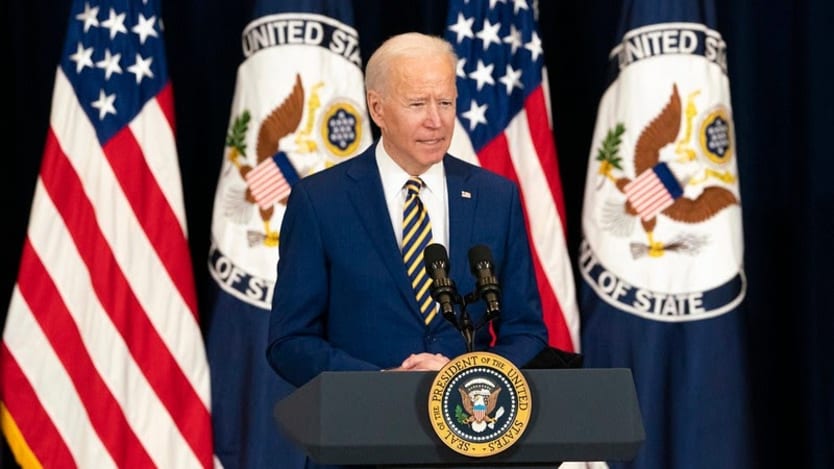
In his first major foreign policy speech since becoming the U.S. president, Joe Biden made the case for diplomacy and foreign assistance, marking a sharp contrast to his predecessor.
“When we invest in economic development of countries, we create new markets for our products and reduce the likelihood of instability, violence, and mass migrations. When we strengthen health systems in far reaches of the world, we reduce the risk of future pandemics that could threaten our people and our economy,” Biden said in his speech at the State Department.
“When we defend equal rights of people the world over, of women and girls, LGBTQ individuals, Indigenous communities, and people with disabilities, the people of every ethnic background and religion, we also ensure that those rights are protected for our own children here in America. America cannot afford to be absent any longer on the world stage.”
He spoke to the need to have “American working families” at the heart of foreign policy decisions, saying there is “no longer a bright line between foreign and domestic policy.”
Biden also outlined policy objectives, including a response to the coup in Myanmar, new steps to address the crisis in Yemen, and a new effort to “reinvigorate” U.S. global leadership on LGBTQ issues.
Why it matters: Following four years when foreign aid budgets were constant battles and the U.S. withdrew from many international organizations, Biden struck a different tone, clearly stating the importance of diplomacy and development in his administration. Biden also told State Department employees he values them and will empower them — not “target or politicize” them.
It was an important message in the wake of depleted morale under former President Donald Trump and concerns about the lack of career officials appointed to leadership posts thus far in the Biden administration.








